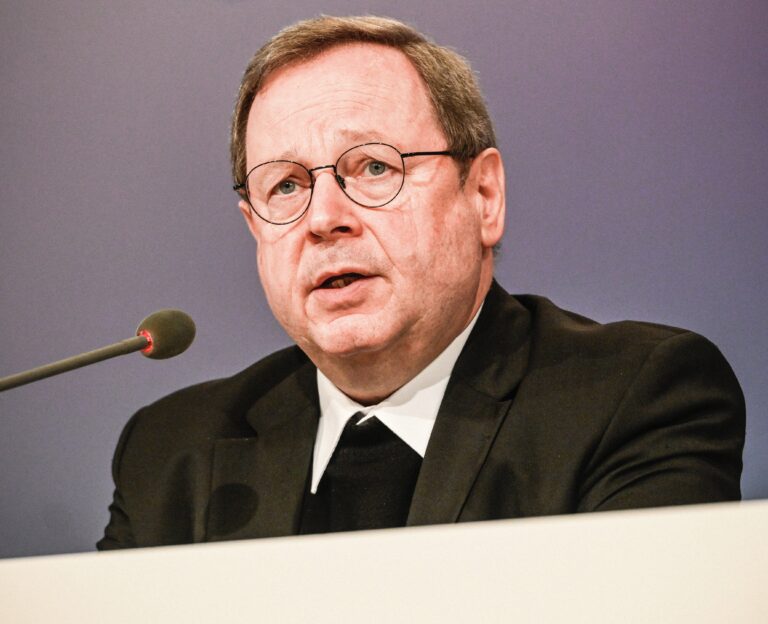The president of the German Bishops’ Conference, Bishop Georg Baetzing, has said he wants blessing ceremonies for same-sex and divorced couples to be offered in his diocese of Limburg.
“Yes, there will be blessing ceremonies for couples who do not want to or cannot marry in church and ask for God’s blessing for their already existing partnership,” Baetzing said.
The bishop of the southwestern German diocese added that concrete instructions still had to be worked out. It should be made clear, he said, that a blessing ceremony is not a marriage and not a sacrament. “This is where the boundary lies.”
Baetzing said such blessing ceremonies already existed “and I am grateful for them”. At the same time, no priest would be put under pressure to hold them.
Controversial
In an interview his diocese circulated on Monday, Baetzing commented on the controversial resolutions of the Synodal Path reform project of the Catholic Church in Germany which triggered criticism from the Vatican and bishops’ conferences in several other countries.
Baetzing said he saw the participation of women as decisive for the future. “I would like to see all ministries and offices open to women in the near or not too distant future,” he said. He supported “with personal conviction the vote of the Synodal Path to move forward intensively on the diaconate for women – and on a world Church level not to close the doors on the question of a possible admission of women to the priesthood, but to thoroughly weigh the theological arguments in favour of it”.
In the Synodal Path reform consultations that began in 2019 and ended this year, bishops and laypeople’s representatives discussed the future of the Catholic Church. The key issues discussed were power, priesthood and sexual morality as well as the role of women in the Church. The work is to be continued in a Synodal Council.
Authority
Commenting on Vatican concerns that some of the plans could limit a bishop’s authority, the Limburg bishop said: “This concern is not justified”. He was specifically referring to the planned participation of bishops and laypeople in a joint governing body, the Synodal Council.
“Even if we move towards joint deliberation and decision-making on certain issues between bishops and others in the Church, this does not weaken the authority of bishops; it only strengthens it,” said Baetzing. The office of bishop, he said, was fundamentally rooted and valued in the image of the Church.
Catholics had spoken of negative experiences, the conference president added. “Many speak of experiences of abuse of power. And we can only counter this through participation, transparency, accountability and control.”
Clarified
Baetzing added that issues needed to be clarified to pave the way for the Synodal Committee, which is to prepare a Synodal Council as a permanent body of bishops and laypeople. In principle, there was “no obstacle” to this. The Vatican had not blocked the committee, but only made it clear that the bishop’s authority must not be undermined.
He added that Rome had also made it clear that no bishop could be obliged to participate. That was something everyone must decide for themselves, Baetzing said. “For me, I have long since done so, because for me there is no alternative to the continuation of genuine, honest and effective synodality in order to shape a good future in our Church under the guidance of the Holy Spirit.”
Originally reported by KNA Germany.



